-
 Bitcoin
Bitcoin $108,270.9768
2.07% -
 Ethereum
Ethereum $2,489.8066
2.50% -
 Tether USDt
Tether USDt $1.0004
0.01% -
 XRP
XRP $2.2035
0.66% -
 BNB
BNB $661.6608
2.32% -
 Solana
Solana $150.6425
2.13% -
 USDC
USDC $0.9999
-0.01% -
 TRON
TRON $0.2810
0.90% -
 Dogecoin
Dogecoin $0.1645
3.05% -
 Cardano
Cardano $0.5743
4.91% -
 Hyperliquid
Hyperliquid $38.8419
-0.15% -
 Bitcoin Cash
Bitcoin Cash $504.3134
-2.64% -
 Sui
Sui $2.8096
4.35% -
 Chainlink
Chainlink $13.3095
2.21% -
 UNUS SED LEO
UNUS SED LEO $8.9469
0.33% -
 Avalanche
Avalanche $17.9231
3.93% -
 Stellar
Stellar $0.2340
0.74% -
 Toncoin
Toncoin $2.8458
3.21% -
 Shiba Inu
Shiba Inu $0.0...01158
3.47% -
 Litecoin
Litecoin $86.0738
1.94% -
 Hedera
Hedera $0.1507
2.99% -
 Monero
Monero $319.8544
2.31% -
 Polkadot
Polkadot $3.4081
1.95% -
 Dai
Dai $1.0000
0.01% -
 Bitget Token
Bitget Token $4.5645
0.91% -
 Ethena USDe
Ethena USDe $1.0002
0.00% -
 Uniswap
Uniswap $7.2959
5.27% -
 Aave
Aave $272.4623
2.90% -
 Pepe
Pepe $0.0...09680
2.96% -
 Pi
Pi $0.4955
0.78%
How to verify the correctness of Bitcoin wallet addresses to avoid transfer errors?
Verify Bitcoin addresses using online tools & manual checksum checks (for advanced users). Double-check addresses, use multiple methods, and beware of phishing scams to avoid irreversible fund loss.
Mar 16, 2025 at 03:50 am
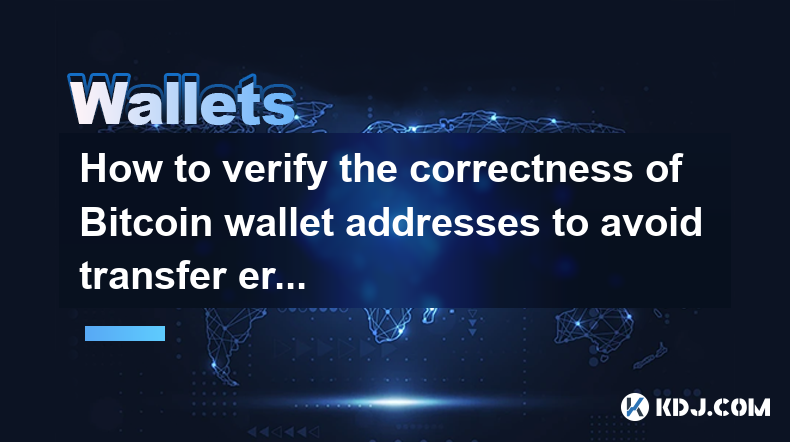
Key Points:
- Understanding Bitcoin address formats and checksums.
- Utilizing online verification tools and their limitations.
- Manually verifying addresses through checksum calculations (advanced).
- Importance of double-checking and using multiple verification methods.
- Recognizing common scams and phishing attempts targeting address verification.
How to Verify the Correctness of Bitcoin Wallet Addresses to Avoid Transfer Errors?
Sending Bitcoin to the wrong address can result in irreversible loss of funds. Verifying the accuracy of a Bitcoin address before each transaction is paramount. This article explores various methods to ensure you're sending your BTC to the intended recipient. The process involves understanding the address format and employing verification techniques to minimize errors.
Bitcoin addresses are alphanumeric strings, typically beginning with '1', '3', 'bc1' (for Bech32 addresses), or 'bcrt1' (for taproot addresses). These prefixes indicate the address type and underlying cryptographic technology. The length and character set are also crucial; deviations indicate a potentially invalid address.
Many online tools allow for quick address verification. These tools typically check the address format for compliance with established Bitcoin standards. However, relying solely on online validators can be risky. Some websites may be malicious, designed to steal your information or redirect you to phishing sites. Always use reputable and well-known verification tools.
For a more thorough check, you can manually verify the address using its checksum. A checksum is an error-detection code built into the address. It's a complex process involving cryptographic hashing algorithms like RIPEMD-160 and SHA-256. While this method offers greater accuracy, it requires a good understanding of cryptography and is best left to experienced users.
- Step 1: Obtain the Bitcoin address you wish to verify.
- Step 2: Use a reliable online Bitcoin address validator. Many are available, but ensure the website is secure (HTTPS).
- Step 3: Paste the address into the validator's input field.
- Step 4: Analyze the validator's output. A valid address will be flagged as such; an invalid address will show an error message.
Remember, even with online validators, human error can still occur. Always double-check the address against the recipient's provided information. Compare it multiple times, and consider using multiple verification methods for added security. Never rush the process; taking your time can prevent costly mistakes.
Phishing attempts often involve fraudulent websites mimicking legitimate services. These sites might claim to offer address verification services but instead steal your Bitcoin private keys or other sensitive data. Be wary of unsolicited emails or messages containing Bitcoin addresses. Always navigate to websites directly, rather than clicking links from suspicious sources.
Understanding the basics of Bitcoin address structure is crucial for avoiding errors. Learn to recognize the different address formats (P2PKH, P2SH, Bech32, Taproot) and their corresponding prefixes. This knowledge enhances your ability to spot potentially invalid addresses. A seemingly small typo can lead to significant losses.
The importance of careful attention cannot be overstated. Carefully review each character of the address. Even a single incorrect character renders the address unusable, leading to the loss of your funds. A methodical approach is essential. Never rush the process.
The security of your Bitcoin is dependent on your vigilance. While online tools offer convenience, they shouldn't replace careful manual verification, especially for larger transactions. Combining online verification with careful manual checks significantly reduces the risk of errors.
Many exchanges and wallets incorporate built-in address validation features. Leveraging these features can further enhance your security. These features often provide visual cues, such as color-coding, to indicate whether an address is valid or invalid.
When dealing with unfamiliar addresses, always seek clarification from the recipient. Confirm the address through alternative communication channels, such as email or phone. This extra step can help prevent accidental transfers to incorrect addresses.
Remember that Bitcoin transactions are irreversible. Once a transaction is broadcast to the network, it cannot be undone. Therefore, verifying the address beforehand is crucial to protect your investment. Proactive measures significantly reduce the risk of irreversible financial losses.
Frequently Asked Questions:
Q: What happens if I send Bitcoin to the wrong address?
A: Your Bitcoin will be lost. Bitcoin transactions are irreversible, and there's no way to recover funds sent to an incorrect address.
Q: Are all online Bitcoin address validators trustworthy?
A: No. Some websites may be malicious. Always use reputable and well-known validators and verify the website's security (HTTPS).
Q: Can I recover Bitcoin sent to the wrong address?
A: No, Bitcoin transactions are irreversible. Once sent, the Bitcoin is lost unless the recipient cooperates and sends it back.
Q: What are the different types of Bitcoin addresses?
A: Common types include P2PKH (starts with '1' or '3'), P2SH (starts with '3'), Bech32 (starts with 'bc1'), and Taproot (starts with 'bcrt1'). Each uses different cryptographic methods.
Q: How can I reduce the risk of sending Bitcoin to the wrong address?
A: Use multiple verification methods (online tools, manual checks, recipient confirmation), double-check the address several times, and never rush the process.
Disclaimer:info@kdj.com
The information provided is not trading advice. kdj.com does not assume any responsibility for any investments made based on the information provided in this article. Cryptocurrencies are highly volatile and it is highly recommended that you invest with caution after thorough research!
If you believe that the content used on this website infringes your copyright, please contact us immediately (info@kdj.com) and we will delete it promptly.
- XRP Price Targets $2.40 After Descending Channel Breakout: Is $40 Next?
- 2025-07-03 08:50:12
- All Blacks' Loose Forward Conundrum: New Faces and Familiar Battles
- 2025-07-03 08:30:12
- Bitcoin's Wild Ride: Open Interest, Institutional Bets, and Billions on the Line
- 2025-07-03 08:30:12
- Bitcoin, Strategy, & Profit: MSTR's Crypto Playbook and Trump's Digital Diversification
- 2025-07-03 08:50:12
- INJ Price Bull Rally: Smashing Long-Term Resistance – Can It Last?
- 2025-07-03 09:10:12
- Robinhood, OpenAI, and Wallet History: A Tokenized Tale of Intrigue
- 2025-07-03 09:10:12
Related knowledge

Does Phantom wallet offer two-factor authentication (2FA)?
Jul 03,2025 at 09:00am
Understanding Phantom Wallet and Its Security FeaturesPhantom wallet is a widely used non-custodial cryptocurrency wallet that supports the Solana blockchain. It allows users to store, send, receive, and interact with decentralized applications (dApps) seamlessly. As security is a top priority for any crypto wallet user, security features like two-facto...

What is "rent" on Solana and how does it affect my Phantom wallet?
Jul 02,2025 at 08:35pm
Understanding 'Rent' on SolanaIn the context of Solana, the term 'rent' refers to a storage fee that users pay for maintaining data on the blockchain. Unlike Ethereum, where storage costs are paid once via gas fees during contract deployment, Solana implements a recurring cost model to ensure efficient usage of network resources. This means that any acc...
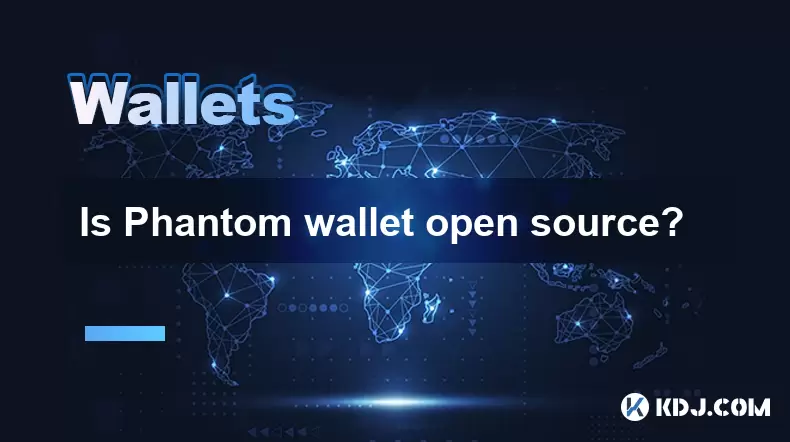
Is Phantom wallet open source?
Jul 03,2025 at 12:29am
What is Phantom Wallet?Phantom wallet is a non-custodial cryptocurrency wallet primarily designed for the Solana blockchain. It allows users to store, send, receive, and interact with decentralized applications (dApps) on the Solana network. The wallet is available as a browser extension and mobile application, offering a seamless experience for both be...
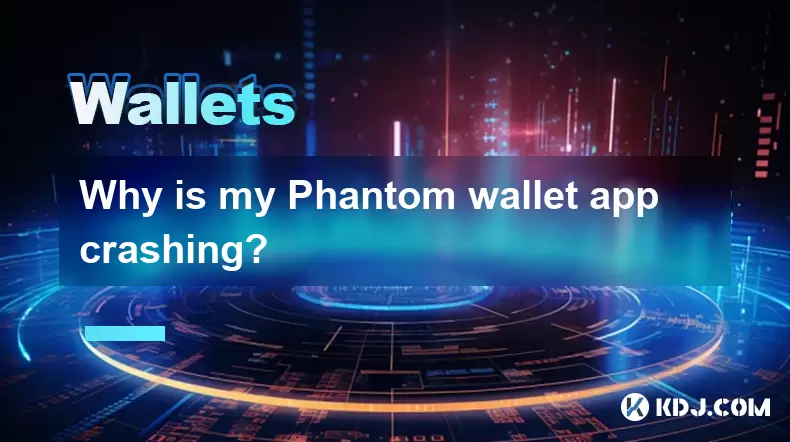
Why is my Phantom wallet app crashing?
Jul 02,2025 at 07:35pm
Understanding Phantom Wallet App CrashesIf you're experiencing issues with the Phantom wallet app crashing, you're not alone. Many users have reported similar problems, especially during high network activity or after recent updates. Phantom is a popular Solana-based wallet that allows users to store, send, and receive SOL tokens as well as interact wit...
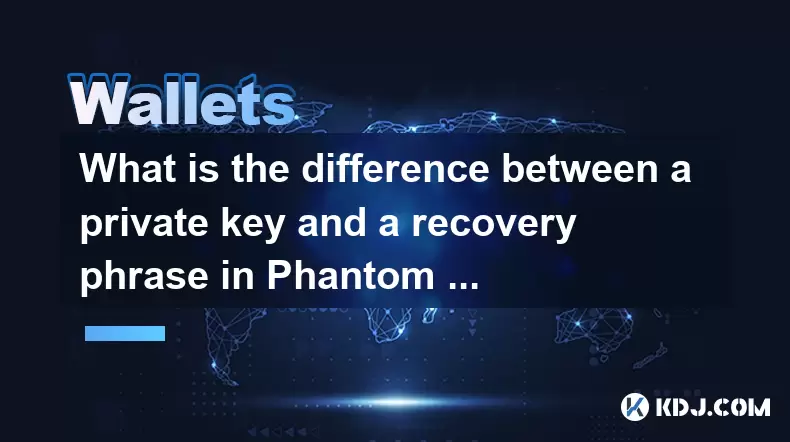
What is the difference between a private key and a recovery phrase in Phantom wallet?
Jul 02,2025 at 09:57am
Understanding the Basics of Phantom WalletPhantom wallet is a non-custodial digital wallet primarily used for interacting with the Solana blockchain. It allows users to store, send, and receive SOL tokens and other digital assets like NFTs. Non-custodial means that the user retains full control over their private keys and recovery phrases. Understanding...
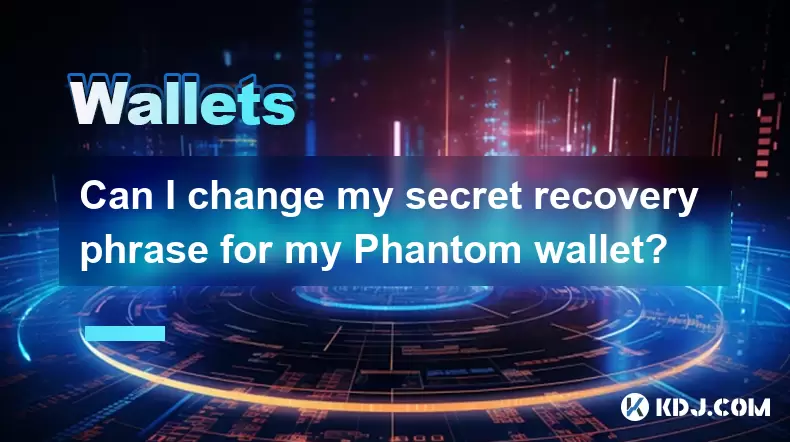
Can I change my secret recovery phrase for my Phantom wallet?
Jul 02,2025 at 12:07pm
Understanding the Role of a Secret Recovery PhraseThe secret recovery phrase, often referred to as a seed phrase, is a critical component in managing cryptocurrency wallets like Phantom. It serves as a backup mechanism that allows users to recover their wallet and associated assets if they lose access to their device or password. Typically, this phrase ...

Does Phantom wallet offer two-factor authentication (2FA)?
Jul 03,2025 at 09:00am
Understanding Phantom Wallet and Its Security FeaturesPhantom wallet is a widely used non-custodial cryptocurrency wallet that supports the Solana blockchain. It allows users to store, send, receive, and interact with decentralized applications (dApps) seamlessly. As security is a top priority for any crypto wallet user, security features like two-facto...

What is "rent" on Solana and how does it affect my Phantom wallet?
Jul 02,2025 at 08:35pm
Understanding 'Rent' on SolanaIn the context of Solana, the term 'rent' refers to a storage fee that users pay for maintaining data on the blockchain. Unlike Ethereum, where storage costs are paid once via gas fees during contract deployment, Solana implements a recurring cost model to ensure efficient usage of network resources. This means that any acc...

Is Phantom wallet open source?
Jul 03,2025 at 12:29am
What is Phantom Wallet?Phantom wallet is a non-custodial cryptocurrency wallet primarily designed for the Solana blockchain. It allows users to store, send, receive, and interact with decentralized applications (dApps) on the Solana network. The wallet is available as a browser extension and mobile application, offering a seamless experience for both be...

Why is my Phantom wallet app crashing?
Jul 02,2025 at 07:35pm
Understanding Phantom Wallet App CrashesIf you're experiencing issues with the Phantom wallet app crashing, you're not alone. Many users have reported similar problems, especially during high network activity or after recent updates. Phantom is a popular Solana-based wallet that allows users to store, send, and receive SOL tokens as well as interact wit...

What is the difference between a private key and a recovery phrase in Phantom wallet?
Jul 02,2025 at 09:57am
Understanding the Basics of Phantom WalletPhantom wallet is a non-custodial digital wallet primarily used for interacting with the Solana blockchain. It allows users to store, send, and receive SOL tokens and other digital assets like NFTs. Non-custodial means that the user retains full control over their private keys and recovery phrases. Understanding...

Can I change my secret recovery phrase for my Phantom wallet?
Jul 02,2025 at 12:07pm
Understanding the Role of a Secret Recovery PhraseThe secret recovery phrase, often referred to as a seed phrase, is a critical component in managing cryptocurrency wallets like Phantom. It serves as a backup mechanism that allows users to recover their wallet and associated assets if they lose access to their device or password. Typically, this phrase ...
See all articles

























































































